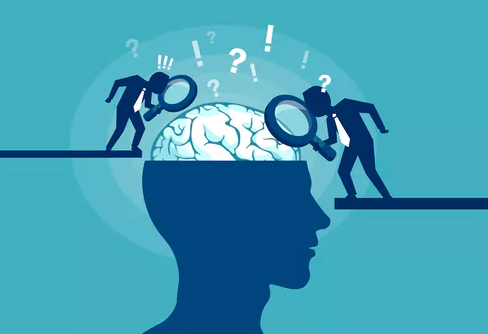9 Important alzheimer facts you should know
1. What is alzheimer’s?
Alzheimer’s disease is an irreversible, progressive brain disorder that slowly destroys memory and thinking skills, and, eventually, the ability to carry out the simplest tasks. In most people with Alzheimer’s, symptoms first appear in their mid-60s. Estimates vary, but experts suggest that more than 5.5 million Americans, most of them age 65 or older, may have dementia caused by Alzheimer’s.
2. Alzheimer’s is different than dementia
According to an article from Healthline, Dementia is a syndrome, not a disease. Dementia is a group of symptoms that affects the mental cognitive tasks such as memory and reasoning. While dementia is an umbrella term that Alzheimer’s disease can fall under. It occurs due to a variety of conditions, the most common of which is Alzheimer’s disease.
3. How dementia and alzheimer’s can get diagnosed
The first function that people associate with this, is forgetfulness. And while this may be the first sign a loved one will notice, there are a few other things to look out for. To receive a diagnosis of dementia, you need to have your cognition change in two of the following six ways:
- Complex Attention
- Cognitive Functioning
- Memory
- Verbal and Non-verbal Language
- Social Communication
- Perception of Surroundings
4. alzheimer’s can occur at any age
Alzheimer’s is not a normal part of aging. The greatest known risk factor is increasing age, and the majority of people with Alzheimer’s are 65 and older. However, alzheimer’s is not just a disease of that occurs during old age. There are approximately 200,000 Americans under the age of 65 that have Alzheimer’s disease, which is also known as early-onset Alzheimer’s.
5. exercise is known to delay the onset of dementia
A study conducted in Sweden included middle age women who were very active. This included women still working jobs that required lots of physical movement and women who exercised at least five times per week. Just 5% of the highly fit women in the study were diagnosed with dementia, compared with 25% for the average and 32% for the low-fitness groups. Even for the 5% of highly fit women who received a diagnosis, they were diagnosed on average 9.5 years later. That is incredible!
6. The role of plaques and tangles
Not sure if you have ever heard of these terms before but they refer the structures inside the brain that are responsible for damaging the nerve cells. Plaques are deposits of a protein fragment called beta-amyloid that build up in the spaces between nerve cells. Tangles are twisted fibers of another protein called tau that build up inside cells. Studies have shown that we develop some plaques and tangles as we age. However, the amount that is developed during Alzheimer’s is far greater.
7. the seven stages of alzheimer’s
There are currently seven stages of Alzheimer’s disease beginning with no apparent notice to a very severe decline. Most doctors will refer to these stages in three parts. Early, moderate and end are the most common. By understanding the stages in a deeper meaning may help you with noticing symptoms in a loved one. Dr. Barry Reisberg of New York has broken these stages down further to help with the understanding of the progression of the disease.
8. alzheimer’s and genetics
While some scientists say there is no direct correlation between the disease being genetic, other experts are convinced the two correlate. One gene in particular is of interest to researchers. Apolipoprotein E is a gene that has been linked to the onset of Alzheimer’s in adults. Blood tests can determine if you have this gene, which could increase your risk of developing Alzheimer’s. Keep in mind that even if someone has this gene, they may not get Alzheimer’s. The opposite is also true. Somebody could still develop Alzheimer’s even if they don’t have the gene. There’s no way to tell for sure.
9. Caregivers should seek help if needed
If a loved one receives a diagnosis of Alzheimer’s, get help soon! You do not have to do this alone. You will also be able to better support your loved one if you are able to take good care of yourself as well. Many studies have shown the adverse effects of taking it all on your own. Juniper provides support and guidance to both caregivers and recipients. For more, please visit us juniperhomecare.com
More Blog Posts?
HEALTHY HABITS AND TIPS FOR CAREGIVERS
HOW TO STAY POSITIVE WHILE CAREGIVING!
WHAT IS THE FAMILY CAREGIVER PROGRAM?
Visit us on Instagram and Linked In

